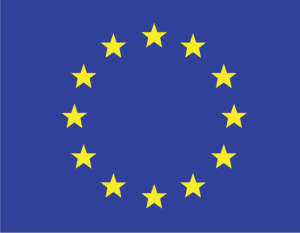Australian tax deductions you should know about this End of Financial Year
Tax season is upon us. Find out how the changes to Australian tax
legislation could impact your business when it comes to claiming deductions on your tax bill and maximising savings.

Tax time in Australia is fast-approaching, so businesses of all sizes and types need to be aware of the various deductions they can claim. Claiming deductions can help reduce taxable income, resulting in a smaller tax bill and more money to spend on building your brand.
However, with the laws surrounding tax ever-changing, it can be challenging for companies to keep up with the latest regulations and what they can or cannot claim in their tax bill.
In this article, we’ll discuss the possible deductions you need to be aware of this End of Financial Year 2023.
However, before we start, it’s important to note that this guide should not be taken as financial advice, and should not replace legal consultation with a qualified tax agent.
Our aim is simply to provide information and assist in clarifying tax-related issues for small businesses.
Tax time in Australia: Before claiming, know this
To avoid any confusion or mistakes when claiming taxes, small businesses must understand how much money they need to earn before applying for deductions. For example, the current threshold for sole traders is AUD $18,200.
In contrast, business entities are charged a 30% tax rate, with differing rates applying depending on whether the company is a ‘base rate entity’ (more on this later).
What can I claim tax on at the end of financial year 2023?
Companies can generally claim taxes on rent, salaries, office supplies and so on. However, there are other more significant expenses eligible for deductions. In some cases, you can claim for travel fares, marketing expenses and even company vehicles.
To make a successful claim, you must keep all invoices and receipts to prove validity with the Australian Tax Office (ATO). Invoices and receipts are incredibly important pieces of documentation you would be required to provide in the event of an audit. A tax audit is when a representative from The ATO visits your firm to check that you have provided all the proper information in your financial statements.
Therefore, maintaining flawless record-keeping practices should be a top business priority. Failing to substantiate any tax deduction claims may result in a hefty fine.
“Small businesses must keep track of their financial records, understand tax obligations, and stay organised from day one. It’s a lot,” says Adrien Barthel, co-founder of Sleek, a business services platform that supports SMEs with tax, accounting and bookkeeping needs. “As entrepreneurs ourselves, we understand what small business owners need from their tax accountants and what they don’t. That’s why we developed a service that streamlines their compliance back office in the cloud, freeing them to focus on growing their business, not tracking receipts.”
- Open 10+ local currency accounts with local account details
- Direct CNH payments to 1688.com
- Pay suppliers, partners and staff in 40+ currencies and 130+ destinations
- Collect secure payments from 100+ marketplaces and payment gateways, including Amazon, AliExpress, Paypal and Shopify
- Lock in currency conversion rates for up to 24 months
The instant assets write-off
Instant asset write-off deductions allow firms to claim the cost of certain assets back in their tax bill. It can be applied to new and second-hand depreciating purchases, making it a great tool for optimising your tax strategies.
Furthermore, the limit for instant asset write-off deduction has increased this year. For small businesses with a turnover of less than AUD $10 million per year, the limit is now AUD $150,000 – this provides small businesses with an excellent opportunity to reduce their liability.
To find out more about which assets apply and other eligibility conditions, check out the Australian Tax Office website.
New initiatives: The Small Business Technology Investment Boost and The Small Business Skills and Training Boost
Small businesses in Australia The Small Business Technology Investment Boost initiative will offer a tax incentive
for small businesses that invest in new technology. It’s hoped the scheme will help more businesses adopt new systems and processes to help boost efficiency and company competitiveness. set to benefit from two exciting new government initiatives to boost technology investment and skills training. These include
The Small Business Technology Investment Boost
The Small Business Technology Investment Boost initiative will offer a tax incentive for small businesses that invest in new technology. It’s hoped the scheme will help more businesses adopt new systems and processes to help boost efficiency and company competitiveness.
The Small Business Skills and Training Boost
In addition, the Small Business Skills and Training Boost scheme will provide funding to help small businesses upskill their employees, ensuring they have the expertise needed to keep up with the fast pace of modern business.
If passed by the Australian government, both of these initiatives will provide vital support to smaller brands as they navigate the ever-changing global business landscape. Investing in people and technologies can help businesses future-proof
their long-term success and growth plans.
Base rate entities
Australian companies that meet the criteria to be classified as a ‘base rate entity’ may be able to take advantage of a lower tax rate than those charged at the standard company tax rate of 30%.
In order to gain this classification, your company must have a total income below a certain threshold and earn most of this figure from their core business activities rather than through investments.
This year, the base rate entity tax rate is charged at 25% rather than the full company tax rate.
This change provides an excellent opportunity for smaller businesses to minimise losses and increase their income during the financial year.
Maintain a clean audit trail in your multi-currency transactions using Xero Integration
For companies that trade in multiple currencies with partners and suppliers around the world, keeping track of your FX payments at the end of financial year 2023 is easy with WorldFirst.
With our World Account, you can trade in over ten worldwide currencies from one central platform without opening separate international bank accounts in each region. You can also connect your World Account payments to your Xero accounting tools, ensuring that your FX transactions are logged automatically in your company’s
financial statements.
Moreover, the World Account makes it easy for companies to send mass payments, repatriate funds into their home currency 24/7 and get support with all of their international money transfer queries. So, if you want to learn more about thevWorldFirst account options, click here. Or, call us on +61 2 8298 4990.
Disclaimer: These comments are the views and opinions of the author and should not be construed as advice. You should act using your own information and judgement. Whilst information has been obtained from and is based upon multiple sources the author believes to be reliable, we do not guarantee its accuracy and it may be incomplete or condensed. All opinions and estimates constitute the author’s own judgement as of the date of the briefing and are subject to change without notice. Please consider FX derivatives are high risk, provide volatile returns and do not guarantee profits.


How fintech companies have revolutionised FX
Innovative tech means international payments can be made faster, more cheaply and more securely. Take a look at what it means for SMEs.
Apr / 2024
2023: key retail dates to get in your diary
Planning your 2023 sales strategy? Our latest infographic lists this year’s key retail dates, holidays and sales opportunities.
Apr / 2024
Business etiquette and trends in Japan
If you’re planning to expand your business to Japan, here’s what you should and shouldn’t do.
Apr / 2024Choose a category below for more business, finance and foreign exchange support from WorldFirst.
- Almost 1,000,000 businesses have sent USD$150B around the world with WorldFirst and its partner brands since 2004
- Your money is safeguarded with leading financial institutions



















